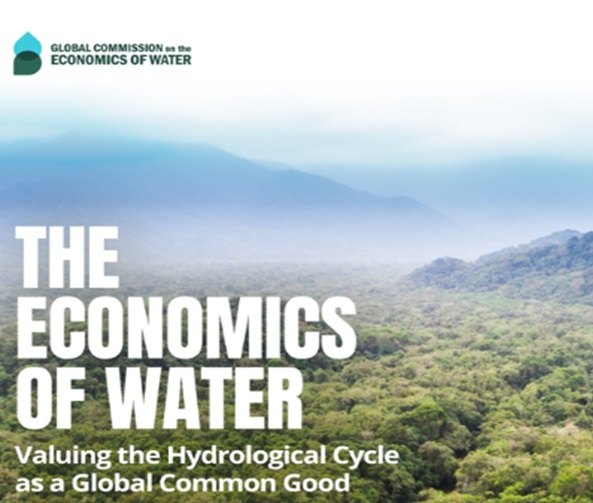|
Prelims
(Current Affairs, Environment and Ecology)
Mains Exam
(General Studies Paper- 3: Conservation, Environmental Pollution and Degradation, Environmental Impact Assessment)
|
Reference:
Recently, a new report was released by the Global Commission on the Economics of Water (GCEW). According to this, for the first time in human history, the global hydrological cycle has become unbalanced, posing a threat to human welfare, economic stability and sustainable development. About the Global Commission on Water Economics (GCEW)
- What is it: An organization established to redefine the way water is valued and managed for the public good
- Formation: By the Government of the Netherlands with support from the Organisation for Economic Co-operation and Development (OECD).
- Establishment: Starting in May 2022 with a 2-year mandate
- Implementation: An independent and diverse group of distinguished policymakers and researchers from across sectors that bring new perspectives to water economics and connect the global economy with sustainable water-resources management.
- Aim: To make a significant and ambitious contribution to the global effort to transform the way societies control, use and value water.
- Goal: To transform the world’s understanding of water economics and governance, with a special emphasis on equity, justice, effectiveness and democracy.
- Based on three pillars: analysis, social dialogue and an action agenda

Key findings of the recently released report:
- Title of the report: ‘The Economics of Water: The Hydrological Cycle as a Global Common Good’ Importance (The Economics of Water: Valuing the Hydrological Cycle as a Global Common Good)
- Global GDP loss: Global GDP loss due to water scarcity could reach 8% by 2050, with low-income countries suffering up to 15%.
- Widespread ecosystem degradation: Decades of improper water management and undervaluation of freshwater resources have led to widespread ecosystem degradation and contamination of water sources.
- Social degradation: More than 1,000 children under the age of five die every day from diseases related to unsafe water and poor sanitation conditions, while women and girls spend 200 million hours a day collecting water.
- Agricultural systems are running out of freshwater and many cities are sinking due to aquifer depletion.
- Threats to food production: Climate change crises could threaten more than half of the world’s food production, particularly in regions where water availability is unstable.
- Nearly three billion people live in regions where water availability is unstable, putting human security and food systems at risk.
- Ignoring green water: One of the key findings of the report is that current water management practices have overlooked the importance of ‘green water’, which refers to moisture in soil and plant life.
- Although green water plays an important role in maintaining rainfall patterns and supporting ecosystems, it has been largely ignored in favour of managing more visible sources such as rivers, lakes and aquifers.
Key recommendations proposed in the report:
- Conservation of green water: Conserving ‘green water’ is essential to stabilize rainfall, mitigate climate change and ensure economic sustainability.
- Multidimensional reforms: It proposes to revolutionise food systems by improving water efficiency in agriculture, preserving natural habitats, promoting circular water economy, encouraging sustainable innovation and ensuring availability of clean water for all.
- Improvement in agricultural systems: Reducing water use in agriculture by one-third, increasing crop yields and promoting transition to regenerative agriculture systems on 50% of global croplands by 2050.
- Conservation and restoration of aquatic ecosystems: It calls for restoration of 30% of degraded forests and inland water ecosystems to revive ‘green water’ flows and stabilise rainfall patterns.



